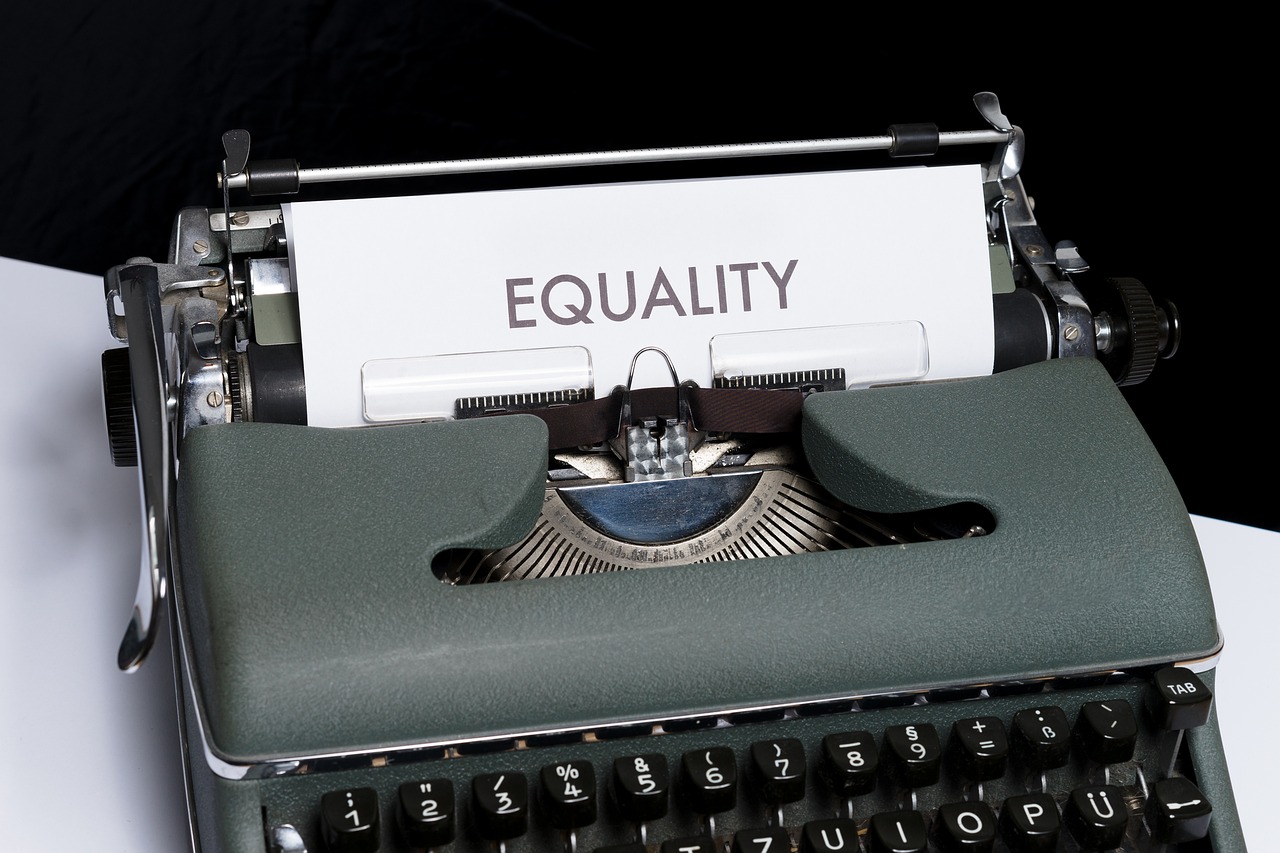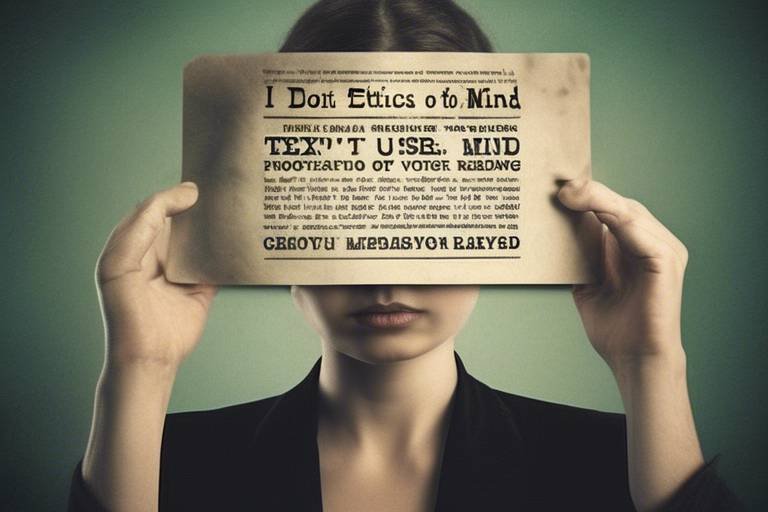Is Diplomatic Impunity Morally Defensible?
The concept of diplomatic immunity has long been a cornerstone of international relations, but is it truly morally defensible? This question evokes a whirlwind of opinions, emotions, and ethical considerations. On one hand, we have diplomats who need to operate without the looming threat of legal repercussions in foreign lands. On the other hand, we face the stark reality that this immunity can sometimes lead to serious abuses. So, how do we navigate these murky waters? Is it possible to strike a balance between protecting diplomatic missions and ensuring accountability for actions that could harm others?
To fully grasp the implications of diplomatic immunity, we must dive into its ethical dimensions. Imagine a world where diplomats are constantly looking over their shoulders, fearing arrest or harassment. This scenario could stifle open communication and negotiation, ultimately harming international relations. Supporters argue that without this protective shield, diplomats might be less willing to engage in crucial discussions, leading to a breakdown in diplomacy. However, the flip side is equally compelling. What happens when this immunity is exploited? Are we willing to accept that some individuals might evade justice simply because of their diplomatic status?
Historically, diplomatic immunity emerged as a means to facilitate peaceful relations between states. Its roots can be traced back to ancient civilizations, where emissaries were granted safe passage to ensure communication between warring factions. Fast forward to today, and we see a complex web of treaties and agreements that govern how diplomatic immunity is applied. Yet, the question remains: does this historical context justify its continued existence in its current form? Or have we reached a point where reform is not just necessary, but inevitable?
One of the most compelling arguments for maintaining diplomatic immunity is its role in fostering international cooperation. Without this protection, diplomats may be hesitant to engage in sensitive discussions, fearing that their actions could lead to legal consequences. However, this brings us to a critical juncture in the debate. As we examine the arguments for and against diplomatic immunity, we must consider the potential consequences of its absence. Would the benefits of increased accountability outweigh the risks of diplomatic isolation?
In the end, the question of whether diplomatic impunity is morally defensible is not a black-and-white issue. It requires a nuanced understanding of international relations, legal frameworks, and ethical considerations. As we continue to grapple with these issues, it's essential to engage in open dialogue and consider reforms that can enhance accountability while still preserving the fundamental principles of diplomacy. After all, in a world that is increasingly interconnected, finding common ground is more important than ever.
- What is diplomatic immunity?
Diplomatic immunity is a principle of international law that protects diplomats from legal action in the host country, ensuring they can perform their duties without interference.
- Why was diplomatic immunity established?
It was established to facilitate peaceful communication and negotiation between states, allowing diplomats to operate without fear of arrest or harassment.
- What are the criticisms of diplomatic immunity?
Critics argue that it can lead to abuses, allowing diplomats to evade accountability for serious crimes, thereby undermining justice.
- Are there calls for reform in diplomatic immunity?
Yes, many advocate for reforms to increase accountability while preserving the essential functions of diplomacy.

The Concept of Diplomatic Immunity
Diplomatic immunity is a fascinating and often misunderstood principle of international law that serves as a protective shield for diplomats while they carry out their duties in foreign countries. Imagine a world where diplomats, who are essentially the bridge between nations, could be arrested or sued at any moment—chaos would ensue! This principle allows diplomats to perform their functions without the fear of legal repercussions, ensuring that they can engage in open and honest dialogue. But what exactly does this mean for the host country and the diplomat?
The origins of diplomatic immunity can be traced back to ancient civilizations, where envoys were granted safe passage to facilitate communication between warring factions. Over time, this practice evolved into a formalized system recognized by modern international law. Today, diplomatic immunity is codified in various treaties, most notably the Vienna Convention on Diplomatic Relations of 1961. This treaty outlines the rights and privileges of diplomats, including immunity from arrest and prosecution in the host country.
However, the concept is not without its complexities. While diplomatic immunity is crucial for maintaining peaceful international relations, it raises significant ethical questions. For instance, does the protection afforded to diplomats create a double standard, allowing some individuals to evade justice? As we delve deeper into this topic, we must consider both the benefits and drawbacks of such a system.
To better understand diplomatic immunity, it's important to note the different types of immunity that exist. Generally, we can categorize them into two main forms:
- Personal Immunity: This protects diplomats from being prosecuted or sued for actions taken while performing their official duties.
- Functional Immunity: This covers acts performed in an official capacity, shielding diplomats from legal action related to their professional responsibilities.
Despite its noble intentions, the application of diplomatic immunity can sometimes lead to controversy. For example, when diplomats commit crimes, their immunity can prevent local law enforcement from taking action. This has led to public outcry and debates about whether the current system needs reform. As we explore the historical context and arguments for and against diplomatic impunity, we will uncover the intricate balance between state sovereignty and the quest for accountability in international relations.

Historical Context of Diplomatic Immunity
The concept of diplomatic immunity has deep roots in history, evolving through centuries of international relations and changing political landscapes. Its origins can be traced back to ancient civilizations, where envoys were often granted safe passage and protection to facilitate communication between rival states. For instance, in ancient Greece, emissaries were considered sacred and were shielded from harm, reflecting a mutual recognition of the need for dialogue even amidst conflict. This early form of immunity laid the groundwork for more formalized practices that would emerge in later centuries.
As societies progressed, the principles governing diplomatic immunity began to take shape. The Middle Ages saw the establishment of more structured diplomatic missions, where ambassadors were accorded certain protections. However, it wasn't until the Vienna Convention on Diplomatic Relations in 1961 that a comprehensive legal framework was established. This pivotal treaty codified the rights and responsibilities of diplomats, emphasizing the necessity of immunity for diplomats to carry out their functions effectively without fear of interference from host states. The convention articulated that diplomats should be free from arrest and detention, and their correspondence should remain inviolable.
Throughout history, various treaties and agreements have contributed to the refinement of diplomatic immunity. For example, the Hague Conventions in the early 20th century further clarified the rules governing diplomatic agents, reinforcing the idea that these protections are essential for maintaining peaceful international relations. The evolution of diplomatic immunity reflects not just legal developments but also the changing dynamics of global politics. As nations have become increasingly interconnected, the need for reliable diplomatic channels has only intensified, making the concept of immunity more relevant than ever.
However, the historical context also reveals a tension between state sovereignty and the need for accountability. While the protections afforded to diplomats are vital for ensuring effective diplomacy, they have also raised questions about the potential for abuse. Over the years, numerous incidents have sparked debates about the limits of diplomatic immunity and whether it should extend to serious crimes. This ongoing discourse highlights the complexity of balancing the necessity of diplomatic functions with the imperative of upholding justice.
In summary, the historical development of diplomatic immunity illustrates a delicate interplay between the need for safe and effective diplomacy and the challenges posed by potential misuse of these protections. Understanding this context is crucial for engaging in contemporary discussions about the ethics and efficacy of diplomatic immunity as it stands today.
- What is diplomatic immunity?
Diplomatic immunity is a principle of international law that protects diplomats from legal action in the host country, allowing them to perform their duties without fear of harassment or coercion. - When did diplomatic immunity begin?
The concept dates back to ancient civilizations but was formalized with the Vienna Convention on Diplomatic Relations in 1961. - Are there limits to diplomatic immunity?
Yes, while diplomats enjoy certain protections, there are ongoing debates about the extent of these protections, especially concerning serious crimes. - Why is diplomatic immunity important?
It is essential for maintaining international relations and ensuring that diplomats can operate effectively without interference.

Arguments for Diplomatic Impunity
When diving into the discussion of diplomatic immunity, it's essential to understand the core arguments that support this principle. Advocates of diplomatic immunity often cite its critical role in fostering international relations. Imagine a world where diplomats could be arrested or prosecuted in the host countries where they operate; this would create an atmosphere of fear and distrust, making it nearly impossible for nations to communicate effectively. The principle of diplomatic immunity allows diplomats to perform their duties without the looming threat of legal repercussions, thus facilitating smoother negotiations and interactions.
One of the primary arguments in favor of diplomatic immunity is that it promotes global stability. Diplomats are often sent to countries facing political turmoil or conflict, and their ability to operate without interference is vital. If diplomats were subjected to local laws, they might hesitate to engage in necessary discussions, fearing that their actions could be misinterpreted or exploited. For instance, if a diplomat were to attend a protest or a political rally, they could be arrested for participating in activities that are perfectly legal in their home country but deemed illegal in the host nation. This would not only hinder their work but could also escalate tensions between the two countries involved.
Furthermore, proponents argue that diplomatic immunity is crucial for protecting state interests. Diplomats often handle sensitive information and negotiations that could impact national security. By ensuring that they are shielded from legal action, countries can trust that their representatives will act in the best interest of their nation without fear of retaliation or legal consequences. This trust is fundamental in international diplomacy, where the stakes can be incredibly high.
Another compelling argument is that diplomatic immunity serves as a form of reciprocity. Countries recognize that if they grant immunity to foreign diplomats, their own diplomats will receive the same protections abroad. This mutual understanding is vital for maintaining a functional international system. Without it, countries might be less inclined to send diplomats to nations where they might not receive similar protections, leading to a breakdown in diplomatic relations.
Moreover, the principle of diplomatic immunity is enshrined in various international treaties, such as the Vienna Convention on Diplomatic Relations. This convention, established in 1961, outlines the rights and responsibilities of diplomatic missions and their personnel. By adhering to these established norms, countries demonstrate their commitment to international law and the importance of diplomacy in resolving conflicts. The legal framework surrounding diplomatic immunity provides a sense of security for diplomats, allowing them to focus on their roles rather than worrying about legal entanglements.
In summary, while the debate around diplomatic immunity is complex, the arguments in favor of it highlight its necessity for maintaining international relations, protecting state interests, and ensuring a stable diplomatic environment. As we navigate the intricate web of global politics, it becomes clear that diplomatic immunity is not merely a privilege but a fundamental aspect of how nations interact with one another.
- What is diplomatic immunity? Diplomatic immunity is a principle of international law that protects diplomats from legal action in host countries, allowing them to perform their duties without fear of harassment or coercion.
- Why is diplomatic immunity important? It is essential for maintaining international relations, protecting state interests, and ensuring that diplomats can operate effectively without legal threats.
- Are there any limits to diplomatic immunity? While diplomats enjoy broad protections, there are exceptions, particularly concerning serious crimes. Host countries may declare a diplomat persona non grata, leading to their expulsion.

Arguments Against Diplomatic Impunity
While diplomatic immunity is often lauded for its role in facilitating international relations, there is a growing chorus of voices that argue against its unchecked application. Critics contend that this legal shield can lead to significant abuses, allowing individuals to evade accountability for serious offenses. Imagine a world where someone commits a crime and simply walks away because of their diplomatic status—this is not just a hypothetical scenario but a reality that has unfolded time and again.
One of the most pressing concerns is that diplomatic immunity can create a double standard in the justice system. When diplomats engage in illegal activities, such as drug trafficking or human rights violations, their immunity can prevent local authorities from taking action. This can foster a sense of impunity, where diplomats may feel emboldened to act without regard for the laws of the host country. For instance, in cases of serious misconduct, the public often feels a sense of injustice when they see diplomats escaping repercussions that ordinary citizens would face.
Moreover, the concept of sovereign immunity can lead to a breakdown in trust between nations. When allegations of misconduct arise, they can sour diplomatic relations and create an atmosphere of suspicion. Countries may find it challenging to engage in fruitful dialogue or negotiations if they believe that their counterparts are operating under a veil of immunity that allows them to act without consequences. This is particularly concerning in a global landscape where cooperation is essential for addressing pressing issues like climate change, terrorism, and pandemics.
Real-world examples abound, illustrating the potential pitfalls of the immunity system. Take the case of a diplomat involved in a serious traffic accident that resulted in injury or death. If they are allowed to return to their home country without facing trial, it sends a message that their status places them above the law. Such incidents not only undermine public confidence in the legal system but also provoke outrage among citizens who expect justice to be served.
Additionally, critics argue that the current framework of diplomatic immunity is outdated. The original intent of this principle was to protect diplomats from harassment and interference while they carried out their duties. However, in today's interconnected world, the misuse of this privilege raises questions about its relevance. Shouldn't we re-evaluate whether the benefits of diplomatic immunity still outweigh the potential for abuse?
In conclusion, while the arguments for diplomatic immunity emphasize its importance in maintaining international relations, the counterarguments highlight the ethical dilemmas it presents. The potential for abuse, the erosion of trust, and the demand for accountability suggest that a more nuanced approach is necessary. As we navigate the complexities of global diplomacy, it becomes crucial to strike a balance between protecting diplomats and ensuring that they are held accountable for their actions.
- What is diplomatic immunity? Diplomatic immunity is a principle of international law that grants diplomats protection from legal action in their host countries.
- Why do some argue against diplomatic immunity? Critics argue that it can lead to abuses, allowing diplomats to evade accountability for serious crimes.
- Are there any notable cases of diplomatic misconduct? Yes, there have been several high-profile incidents where diplomats faced allegations of serious offenses, raising questions about the effectiveness of immunity.
- What reforms are being proposed? Various reforms aim to increase accountability while still preserving the essential functions of diplomacy, such as limiting immunity in certain cases.

Case Studies of Diplomatic Misconduct
When we think about diplomatic immunity, it often conjures images of well-dressed diplomats engaging in high-stakes negotiations over lavish dinners. However, the reality can be far more complicated and, at times, downright troubling. Diplomatic misconduct has sparked outrage and controversy across the globe, raising critical questions about the extent to which diplomats can evade accountability for their actions. Let’s delve into some notable case studies that reveal the darker side of diplomatic immunity.
One of the most infamous cases occurred in 2016, when a Turkish diplomat in Washington, D.C., was implicated in a violent altercation during a protest against President Recep Tayyip Erdoğan. The incident, which involved the diplomat's security team attacking demonstrators, led to widespread condemnation and calls for the diplomat to be expelled. However, due to diplomatic immunity, he was shielded from prosecution, leaving many to wonder: does this immunity protect diplomats from all forms of accountability, even when they engage in violent acts?
Another striking example is the case of a South African diplomat who was involved in a hit-and-run incident in 2018. The diplomat fled the scene, leading to a police investigation that revealed a pattern of reckless behavior. Despite the clear evidence against him, the South African government refused to waive his immunity, citing the importance of diplomatic relations. This sparked a public outcry, with citizens questioning the morality of allowing individuals to escape justice simply because of their diplomatic status.
To further illustrate the impact of diplomatic misconduct, we can look at the following table, which summarizes some notable incidents involving diplomats and the outcomes that followed:
| Year | Country | Incident | Outcome |
|---|---|---|---|
| 2016 | Turkey | Violent altercation during a protest | No prosecution due to immunity |
| 2018 | South Africa | Hit-and-run incident | No accountability; immunity upheld |
| 2020 | India | Drug-related offenses | Diplomat returned home, no charges |
These examples illustrate a troubling pattern where diplomats, shielded by their immunity, can engage in serious misconduct without facing the consequences that ordinary citizens would. It raises the question: should diplomatic immunity extend to actions that violate the law? Many argue that it should not, especially in cases involving serious crimes. Critics assert that this system enables a culture of impunity, where diplomats can act without fear of repercussions, thereby undermining the very principles of justice and accountability that underpin international relations.
Moreover, the implications of these cases are far-reaching. They can strain diplomatic ties and erode public trust in governmental institutions. When diplomats are perceived as above the law, it creates a rift between nations and their citizens. This sentiment can fuel anti-diplomatic sentiment and complicate international cooperation. The challenge lies in finding a balance between protecting diplomats and ensuring they are held accountable for their actions.
As we navigate these complex waters, it becomes increasingly clear that reform is necessary. The international community must grapple with these ethical dilemmas, examining how to preserve the essential functions of diplomacy while also upholding the rule of law. After all, if we allow diplomatic immunity to become a shield for misconduct, we risk undermining the very fabric of international relations.
- What is diplomatic immunity? Diplomatic immunity is a principle of international law that protects diplomats from legal action in the host country.
- Can diplomats be prosecuted for crimes? Generally, diplomats cannot be prosecuted while serving in a host country, but their home country can choose to waive their immunity.
- What happens in cases of serious misconduct? Serious misconduct often leads to public outcry and calls for reform, but action depends on the home country’s willingness to address the issue.
- Is reform of diplomatic immunity possible? Many advocate for reforms to increase accountability while still preserving the essential functions of diplomacy.

Impact on International Relations
Diplomatic immunity serves as a double-edged sword in the realm of international relations. On one hand, it is a crucial mechanism that facilitates smooth diplomatic interactions, allowing diplomats to operate freely and effectively in foreign nations. Imagine trying to negotiate a peace treaty while constantly looking over your shoulder, fearing legal repercussions for every word spoken or action taken. This protective shield encourages open dialogue and fosters trust between nations. Without such assurances, diplomats might be less willing to engage in candid conversations, ultimately stifling progress on important global issues.
However, the implications of diplomatic immunity extend beyond mere protection. The concept can create a significant imbalance in international relations, particularly when it leads to perceived or actual abuses of power. For instance, when diplomats evade legal accountability for serious offenses, it can sour relationships between countries. Consider the case where a diplomat involved in a serious crime returns to their home country without facing any consequences. This not only frustrates the host nation but can also lead to a breakdown of trust, causing diplomatic ties to fray. In such scenarios, the very foundation of diplomacy—mutual respect and understanding—can be jeopardized.
Moreover, the impact of diplomatic immunity on international relations can be illustrated through various case studies. For example, when a diplomat is accused of misconduct, the host country often faces a dilemma: should they pursue legal action, risking diplomatic fallout, or should they let the incident slide, potentially undermining their own legal system? This tension can lead to strained relations, as countries navigate the murky waters of legal rights versus diplomatic privileges. The table below highlights some notable incidents where diplomatic immunity has influenced international relations:
| Incident | Country Involved | Outcome |
|---|---|---|
| 2018 UK Poisoning Case | Russia/UK | Strained diplomatic relations; expulsion of diplomats |
| 2019 Diplomat's Hit-and-Run | US/UK | Public outcry; diplomatic tensions |
| 2020 Sexual Assault Allegation | India/US | Legal impasse; diplomatic negotiations |
In essence, the impact of diplomatic immunity on international relations is profound and multifaceted. While it is designed to protect and promote diplomacy, it can also lead to significant challenges that undermine the very relationships it seeks to strengthen. Striking a balance between ensuring diplomats can perform their duties without fear and holding them accountable for their actions is crucial for fostering a healthy international environment.
- What is diplomatic immunity? Diplomatic immunity is a principle of international law that protects diplomats from legal action in their host countries, allowing them to perform their duties without fear of harassment or coercion.
- Why is diplomatic immunity important? It is essential for maintaining international relations, as it allows diplomats to engage in open and honest discussions without the threat of legal repercussions.
- What are the criticisms of diplomatic immunity? Critics argue that it can lead to abuses, allowing diplomats to evade accountability for serious crimes, which can strain international relations.
- Are there calls for reform in diplomatic immunity? Yes, many advocate for reforms to increase accountability while preserving the essential functions of diplomacy.

Calls for Reform
The ongoing debates surrounding diplomatic immunity have sparked significant from various sectors of society, including legal experts, human rights advocates, and even some diplomats themselves. Many argue that while the principle of diplomatic immunity is vital for facilitating international relations, its current application often leads to a lack of accountability, particularly in cases involving serious crimes. It raises a critical question: how can we maintain the essential functions of diplomacy without allowing individuals to evade justice?
One of the main proposals for reform is the establishment of a more defined framework that specifies the limits of immunity. Advocates suggest that diplomatic immunity should not be a blanket protection, especially in cases of serious offenses such as violent crimes or human trafficking. By creating a clear delineation between minor infractions and serious crimes, the international community can foster a system that upholds the integrity of diplomatic missions while ensuring that individuals cannot exploit their status to escape legal consequences.
Another area of reform involves the introduction of a mechanism for accountability. Some propose the idea of an international tribunal specifically designed to address cases of diplomatic misconduct. This tribunal would serve as a platform for assessing allegations against diplomats and could impose sanctions or recommend actions to host countries. Imagine a scenario where a diplomat accused of misconduct could be held accountable in a fair and transparent manner, thus restoring public trust in international diplomacy.
Furthermore, there are discussions about enhancing the role of host countries in addressing diplomatic misconduct. Currently, many host nations feel powerless when faced with a diplomat who engages in illegal activities. By empowering these nations with more tools and support, the international community can create a more balanced system. For example, countries could establish bilateral agreements that outline specific protocols for addressing misconduct, ensuring that both parties are aware of their rights and responsibilities.
In addition to these proposals, it's essential to consider the cultural dimensions of diplomatic immunity. Different countries have varying perceptions of what constitutes acceptable behavior for diplomats. Therefore, any reform must take into account these cultural nuances to avoid imposing a one-size-fits-all approach. Engaging in dialogue and fostering mutual understanding among nations can lead to more comprehensive and universally accepted reforms.
Ultimately, the calls for reform are not just about addressing the flaws in the current system; they are also about ensuring that the principles of justice and accountability are upheld in a globalized world. As we navigate the complexities of international relations, it is crucial to strike a balance between maintaining diplomatic privileges and ensuring that these privileges are not abused. After all, diplomacy thrives on trust, and that trust can only be sustained if all parties are held accountable for their actions.
- What is diplomatic immunity? Diplomatic immunity is a principle of international law that protects diplomats from legal action in host countries, allowing them to perform their duties without fear of harassment or coercion.
- Why do some people call for reforms to diplomatic immunity? Some argue that the current system allows for abuses and evasion of justice, particularly in serious criminal cases, and that reforms could enhance accountability without undermining diplomatic functions.
- What types of reforms are being proposed? Proposed reforms include establishing clear limits on immunity, creating mechanisms for accountability, and empowering host countries to address misconduct more effectively.
- How could reforms impact international relations? Reforms could enhance trust between nations by ensuring that diplomats are held accountable for serious offenses while still allowing them to perform their diplomatic functions.

Conclusion: Balancing Accountability and Diplomacy
As we navigate the intricate web of international relations, the question of diplomatic impunity stands at a critical juncture, demanding our attention and consideration. The delicate balance between ensuring that diplomats can perform their duties without fear of harassment and maintaining accountability for their actions is a tightrope walk that nations must carefully manage. On one hand, diplomatic immunity is a cornerstone of global diplomacy, allowing representatives to engage in negotiations and discussions without the looming threat of legal repercussions. This is essential for fostering trust and cooperation among nations. However, on the other hand, the potential for abuse cannot be ignored. Instances where diplomats evade justice for serious offenses raise eyebrows and ignite public outrage, leading to calls for reform.
In light of this tension, it is crucial to explore potential solutions that can enhance accountability while preserving the fundamental principles of diplomacy. One approach could involve establishing clearer guidelines and limitations on the scope of immunity, particularly concerning serious crimes such as human rights violations or violent offenses. By delineating specific categories of actions that fall outside the protective umbrella of diplomatic immunity, we can create a framework that holds individuals accountable without undermining the essential functions of diplomacy.
Moreover, fostering a culture of transparency within diplomatic missions can also play a significant role in addressing these concerns. When diplomats are encouraged to operate within a framework of ethical standards and accountability, it not only enhances their credibility but also strengthens the integrity of international relations as a whole. Trust is a two-way street; just as diplomats must trust the host nations, the public must trust that diplomats will act responsibly and ethically in their roles.
Ultimately, the debate surrounding diplomatic impunity is not just about legal frameworks; it is about the moral compass that guides international interactions. As we reflect on the complexities of this issue, it becomes evident that a balanced approach is necessary—one that respects the vital functions of diplomacy while ensuring that justice is served. The path forward may not be simple, but through dialogue, collaboration, and a commitment to reform, we can work towards a system that honors both diplomatic privileges and the principles of accountability.
- What is diplomatic immunity?
Diplomatic immunity is a principle of international law that protects diplomats from legal action in their host countries, allowing them to perform their duties without interference.
- Why is diplomatic immunity important?
It is essential for maintaining international relations, ensuring that diplomats can engage in negotiations and discussions without fear of harassment or coercion.
- What are the criticisms of diplomatic immunity?
Critics argue that it can lead to abuses, allowing individuals to evade accountability for serious crimes, which raises ethical concerns.
- Are there calls for reform regarding diplomatic immunity?
Yes, many advocate for reforms aimed at increasing accountability while preserving the essential functions of diplomacy, such as clearer guidelines on the scope of immunity.
Frequently Asked Questions
- What is diplomatic immunity?
Diplomatic immunity is a principle of international law that grants diplomats protection from legal action in the host country. This means that they cannot be prosecuted or sued under the local laws, allowing them to perform their duties without fear of harassment.
- Why was diplomatic immunity established?
The concept of diplomatic immunity dates back to ancient times and was established to facilitate smooth international relations. It ensures that diplomats can operate freely and effectively, promoting dialogue and cooperation between nations.
- What are the main arguments in favor of diplomatic immunity?
Proponents argue that diplomatic immunity is crucial for maintaining international relations, as it protects diplomats from coercion and harassment. This allows them to negotiate and communicate without fear of repercussions, fostering peace and understanding.
- What are the criticisms of diplomatic immunity?
Critics contend that diplomatic immunity can lead to serious abuses, allowing individuals to evade accountability for crimes. High-profile cases of misconduct have raised concerns about the potential for diplomats to act without consequences, undermining justice.
- Can diplomatic immunity be revoked?
Yes, diplomatic immunity can be revoked, but it typically requires the host country to declare a diplomat persona non grata. This action can lead to the diplomat being expelled from the country, although it does not negate the immunity retroactively for actions taken while in office.
- How does diplomatic immunity affect international relations?
Diplomatic immunity plays a significant role in shaping international relations by influencing negotiations and bilateral ties. It can build trust between nations, but instances of abuse can strain relationships and lead to calls for reform.
- What reforms are being proposed for diplomatic immunity?
Many advocates suggest reforms aimed at increasing accountability for diplomats while preserving the essential functions of diplomacy. These proposals may include more stringent oversight mechanisms or limitations on immunity in cases of serious crimes.
- Are there any notable case studies of diplomatic misconduct?
Yes, several high-profile incidents have sparked debates on the ethics of diplomatic immunity. These cases often highlight the tension between protecting diplomats and ensuring accountability for serious offenses, prompting discussions on potential reforms.



















